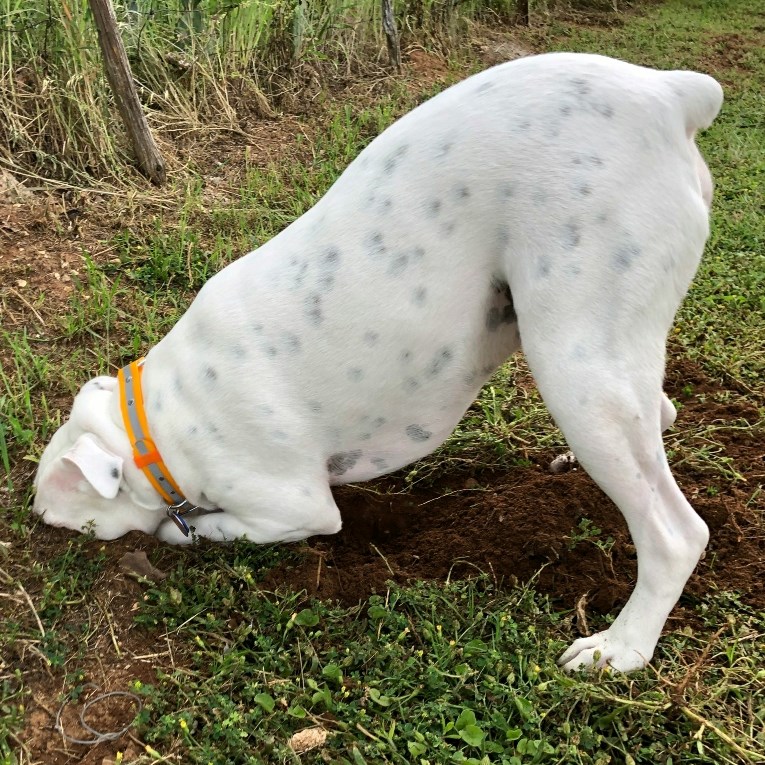![7eaa5330-87b1-4e7c-8d71-820f65e6f724[1]](https://pogled.site/wp-content/uploads/2025/10/7eaa5330-87b1-4e7c-8d71-820f65e6f7241-678x381.jpg)
MOST dog owners have noticed that their pets occasionally nibble on the dirt. While it’s often a harmless habit, if your dog does it on a daily basis, it might be time to worry. Veterinarian Dr. Mark Dos Anjos told ParadePets how to distinguish harmless curiosity from behavior that demands your attention.
When there is no reason to worry
There are a few situations where eating dirt is common and mostly harmless. For example, anxious dogs or those who are bored can develop this habit, which is more common in breeds like sheepdogs and terriers, but also golden retrievers and Labradors. Sometimes the reason is simple – they find dirt to be an interesting smell, especially if it contains traces of animal manure. And let’s not forget puppies who explore the world with their mouths, so tasting dirt is a part of growing up.
When should you worry?
You should be concerned if you suspect that your dog has pika. It is a disorder in which animals, as well as humans, have the need to eat inedible substances such as soil, sticks, paper or even clothes due to certain medical reasons.
Symptoms of peak disorder
A dog suffering from pica may show other symptoms besides eating dirt. Look out for vomiting or diarrhea after being outside, and abdominal pain that is felt when touched.
What causes pica in dogs?
The only case where eating dirt is a cause for concern and requires veterinary attention is if your dog has pica. This condition can develop for several reasons:
- The first and most common cause is anemia. Blood loss due to certain types of parasites leads to iron deficiency, and dogs then eat dirt in an attempt to replenish it. Fortunately, this is less common today due to the widespread availability of deworming agents.
- Another reason may be malnutrition. Nutritional deficiencies, especially iron, zinc, and calcium deficiencies, are the most common causes of pica. This is less common today because dogs generally eat balanced diets.
- A diet consisting exclusively of dry, ultra-processed food can also be a trigger. Such food is relatively sterile and does not support a healthy microbiome, so the dog will seek out sources of nutrients in soil, compost, or even animal feces.
- Diarrhea and stomach upset caused by parasites can also lead to iron deficiency and encourage a dog to eat dirt.
- The most serious, but also rarest cause of pica is liver failure.
What to do if you suspect a spade?
Given the wide range of causes, from mild to very serious, it’s crucial to take your dog to the vet. Your vet will likely perform a stool analysis to check for parasites, a blood test to check for anemia, and possibly X-rays if they suspect a blockage. Some dogs will need a change in diet, and others, even if there’s no medical reason for the behavior, will need behavioral training to break the bad habit.
Can pica be treated at home?
While there are steps you can take at home, it’s crucial to first identify the real cause of the problem. While a puppy who is just exploring the world will likely outgrow this stage, ignoring the problem in dogs with a more serious condition can lead to poor health. Every potential cause should be investigated. Here’s what you can try.
Treatment of anemia
The condition of your dog’s gums can give you a rough idea of how severe the anemia is. Even if it’s mild, you should assume anemia is one of the causes and give your dog a dewormer. You can buy dewormers over the counter at pet stores.
Treatment of malnutrition
Once you have resolved the parasite problem, you can assume that your dog has a mineral deficiency. In this case, you can give him mineral supplements without a prescription. Be sure to read the label and check if the supplements contain zinc and iron.
Improving nutrition
All dogs benefit from a whole foods diet. You can find balanced recipes online and prepare your own meals or buy ready-made, minimally processed foods.
Treatment of intestinal parasites
If your dog has loose stools, it could indicate parasites like coccidia or giardia that are causing pica. Take a stool sample to your vet for analysis to determine the cause. You will need a prescription medication to treat coccidia, while there are some over-the-counter medications available for giardia.
Treatment of liver disease
If pica is the result of liver disease, it will not go away until the underlying problem is treated. There are some natural remedies, such as horsetail, but self-treatment is not recommended without first consulting a veterinarian and having blood tests to check liver enzymes.

Leave a Reply